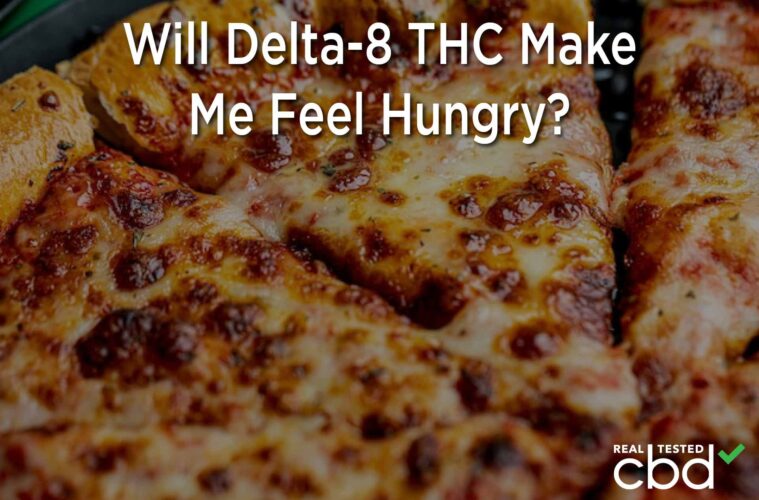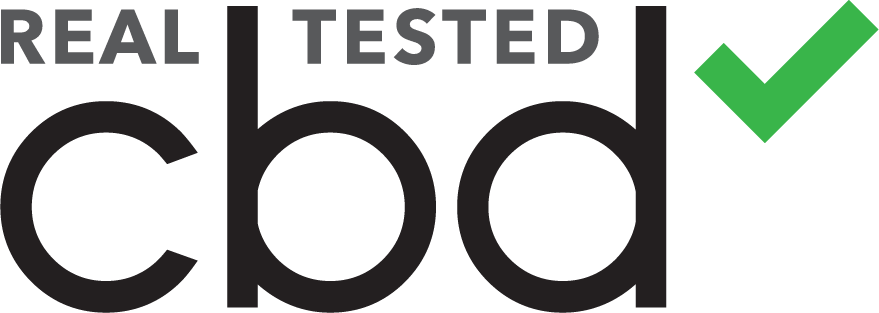View the original article about Delta-8 Side Effects at Real Tested CBD.
For many MMJ patients, “getting high” isn’t as important as “the munchies.” Many studies and anecdotal testimonies confirm the psychoactive cannabinoid delta-9 THC can significantly stimulate a person’s appetite. However, since medical cannabis isn’t legal throughout the USA, some customers are curious if related hemp cannabinoids could have a similar effect.
Delta-8 THC is the most popular THC alternative, so it makes sense people are curious whether delta-8 has the same effect on hunger. Before you try “diet weed” to whet your appetite, please be sure you know what the latest research has to say.
Will Delta-8 Make You Gain Weight? — Research Into Delta-8’s Effect on Hunger
There aren’t many studies on delta-8 THC’s effect on appetite, but the latest research looks promising. Most notably, scientists out of Hebrew University suggest delta-8 may be more effective at appetite stimulation than delta-9 THC.
While this Israeli trial only examined THC in rats, researchers found those who took delta-8 THC ate even more than those who took delta-9 THC. This study also suggests delta-8 helped stimulate brain activity compared with mice who didn’t take delta-8.
According to many anecdotal testimonies, delta-8 can induce the munchies just like marijuana. It’s common for customers who enjoy delta-8 to claim this cannabinoid will ramp up appetite shortly after taking it.
Scientists now believe our brain’s CB1 receptors are related to hunger. The more these sites are active, the more likely we’ll have the urge to snack. Since delta-8 and delta-9 land on CB1 receptors, it makes sense that they positively impact appetite.
Many researchers also believe delta-9 THC increases hunger by stimulating the production of ghrelin. Sometimes called the “hunger hormone,” ghrelin is a natural chemical that rises when we feel hungry. It’s unknown if delta-8 has the same impact on ghrelin concentrations, but most preliminary data strongly suggests there’s a connection.
Can’t People Use CBD Oil For Hunger?
While most tests suggest delta-8 THC has a positive effect on appetite, some customers aren’t comfortable with this cannabinoid’s psychoactivity. Unlike CBD, delta-8 THC will give users a “high” sensation. Although delta-8 isn’t as psychoactive as delta-9 THC, it may not fit every customer’s preferences.
People who have issues with delta-8 often turn to CBD oil for nausea or lack of appetite. In truth, most of the research in this field suggests CBD doesn’t induce a “munchies-like” effect similar to delta-8. While CBD may have potential as an anti-nausea compound, it doesn’t appear to directly ramp up hunger.
So, while CBD may help people struggling with a lack of appetite, customers shouldn’t expect to raid their cabinet for cookies after using this cannabinoid. CBD oil will probably reduce nausea symptoms, but it’s unknown how much this cannabinoid could impact hunger.
Add The Right Delta-8 To Your Diet! — Check Real Tested CBD’s Results
Despite its controversial legal status, delta-8 THC has many potential therapeutic uses. For instance, many people already use delta-8 to help naturally increase their desire for food. Many people who struggle with nausea or a low appetite report good results with various delta-8 products.
However, if you’re going to try a delta-8 THC extract, you must ensure it’s as pure as possible. Only products that come with third-party lab tests verify your delta-8 THC meets high standards for safety. The easiest way to review delta-8 products in one place is to check out the dozens of guides on Real Tested CBD. Although “CBD” is in our name, we constantly publish unbiased reviews of delta-8 products on our website.
Learn more about Delta-8 Products at Real Tested CBD.
Advertising disclosure: We may receive compensation for some of the links in our stories. Thank you for supporting Irvine Weekly and our advertisers.


